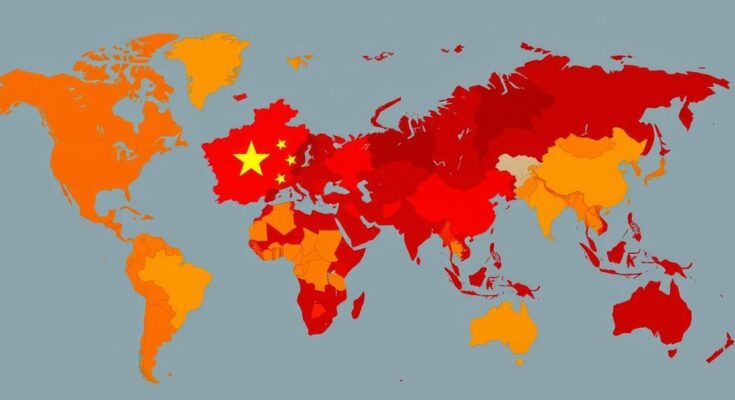President Trump’s executive order significantly reduces funding for the US Agency for Global Media, leading to widespread journalist dismissals. Critics argue this will benefit adversaries like China and Russia, who are amplifying anti-American narratives. Experts warn that the void left by US efforts may result in increased pro-government journalism overseas, thereby altering the landscape of international media.
The recent executive order issued by President Trump has significantly reduced funding for the US Agency for Global Media, leading to the dismissal of numerous journalists. Critics argue that this decision will enhance the influence of adversarial nations such as China and Russia, who are already heavily investing in anti-American media campaigns. Former National Security Council official Lisa Curtis has highlighted the dangers of leaving a void in US international media efforts and pointed out that a pro bono legal team is contesting the cuts as they conflict with Congressional appropriations.
China’s media success can, in part, be attributed to its ability to provide essential resources to local outlets, contrasting with Russia’s more confrontational strategy through state-run media outlets like Sputnik. Following the ban of these outlets in Europe post-Ukraine invasion, Russia has shifted its focus toward Africa, utilizing social media to undermine Western initiatives. According to the Global Engagement Center, this represents a troubling dynamic in the global media landscape.
While there are concerns regarding the rise of Chinese media replacing Voice of America, researcher Sarah Cook emphasizes that the nature of journalism may change significantly under Chinese funding. Cook warns that Chinese state media typically promotes pro-government narratives, suggesting a shift away from independent reporting that has characterized US-funded broadcasters.
Kari Lake, a prominent supporter of Trump, criticized US government-funded media as an unnecessary expense that burdens taxpayers. Trump’s administration has often characterized government-sponsored media as redundant in an age where alternative private news sources are available. Despite this, US broadcasters provide critical coverage in multiple languages, often offering unique insights from local journalists who can reach audiences in regions overlooked by larger media outlets.
Mareike Ohlberg, a senior fellow at the German Marshall Fund, stated that China has been expanding its media presence internationally since the 2008 financial crisis, capitalizing on the vulnerabilities of Western outlets. Ohlberg noted that China’s efforts will persist regardless of current US funding cuts, potentially reinforcing their narratives in regions lacking diverse media alternatives.
In conclusion, President Trump’s executive actions to cut funding for the US Agency for Global Media may inadvertently empower adversarial nations such as China and Russia in the global media arena. The reduction of US funding raises concerns about the future of independent journalism, as adversaries fill the void with pro-government narratives. As these shifts occur, the global media landscape becomes increasingly polarized, with implications for information dissemination worldwide.
Original Source: m.economictimes.com




